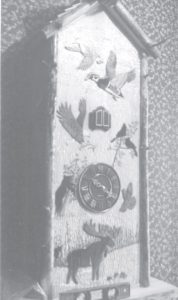I’m Just Curious: Safe summer fun
by Debbie Walker
It’s that time of year again. It’s the time of year when children want to play in the water. It is always intended to be wrapped up in fun and hopefully some learning.
Children reach a certain skill level in the water. It is somewhat different with each child even if they attended the same classes.
Please remember that children are never completely safe. They still make the wrong choices sometimes, even your teens (even adults sometimes!)
Part of all this I know because I was mom and dad’s water rat child. I loved the water, still do. There was one day when my cousin and I decided to see how far we could swim, we could swim out and then come back. We had gotten to the lake, across the road from my home, without knowledge of either mother. (We were tweens at this point) We were lucky that day. We thought turtles were nipping at our toes and we headed back to shore. Had it not been for the turtles (?) we might have stroked till we went as far as we could and might have used up our strength, oh maybe, mid-lake. There was no raft, etc. to rest on, just the other half of the lake. It might not have turned out well for us.
Please parents, grandparents and friends, remember children of all ages need careful supervision. Don’t rely on them hollering for “Help.” Drowning is usually ‘silent’ despite what some folks think. Please don’t leave them even for a minute. It’s just not safe.
I’m just curious if you would be comfortable asking me any water safety questions. I’m here at dwdaffy@yahoo.com.
I would like to tell you that we will be starting a new column: “IN CASE YOU WONDERED.” The plan is for it to be about a favorite subject of mine and I hope you will enjoy it. I am doing it on ‘uses’ of ordinary products used for surprising results. Some of it will be me answering questions others ask about the uses, feel free to e-mail me at dwdaffy@yahoo.com with any questions you may have or any odd-ball uses of things that you have found in the past. Lately one that surprised me was using “glow-in-the-dark” nail polish to mark a light switch that is difficult to find in the dark. It works! I found the nail polish on Amazon. I am going to paint my nails with it to show my little first graders tomorrow! (Some days I just have too much fun!)
I am hoping you will be looking for it every other week. Oh, and don’t forget we have an online version of The Town Line. You can read current copies and past columns in the archives.
Hope you enjoy the paper and your summer!


 REVIEW POTPOURRI
REVIEW POTPOURRI


 by Katie Ouilette
by Katie Ouilette by Marilyn Rogers-Bull & Percy
by Marilyn Rogers-Bull & Percy ERIC’S TECH TALK
ERIC’S TECH TALK And it got me thinking. Is there any law on the books requiring an Artificial Intelligence to tell you it is an artificial intelligence? After a bit of research, I found
And it got me thinking. Is there any law on the books requiring an Artificial Intelligence to tell you it is an artificial intelligence? After a bit of research, I found  SCORES & OUTDOORS
SCORES & OUTDOORS





 TRAINING YOUR PERFORMANCE DOG
TRAINING YOUR PERFORMANCE DOG